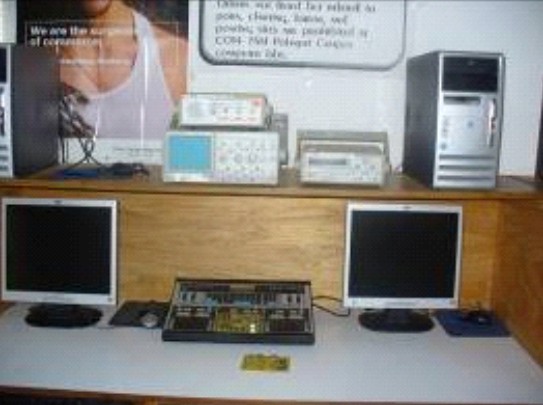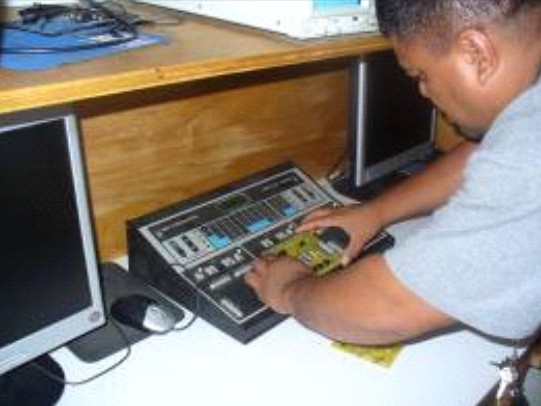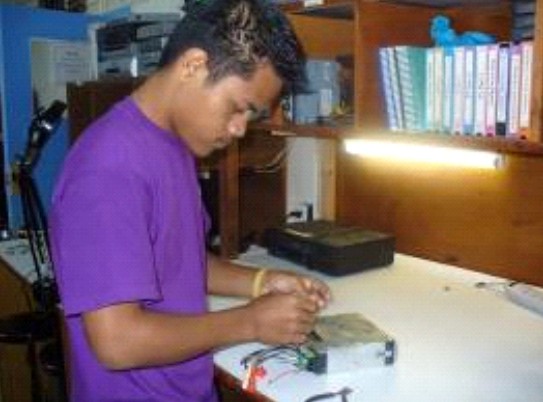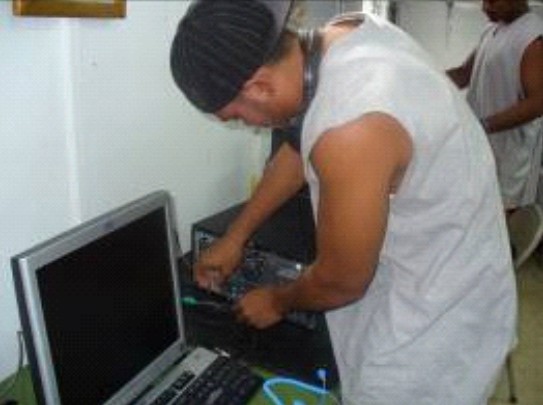 |
College of Micronesia-FSM Federated States of Micronesia |
|
| Computing · Directory · Home · Jobs · Library · News |
| January - Palikir, Pohnpei | |||||||||||||||||||||||||||||||||||||||||||||||
|
M E M O R A N D U M March 5 , 2008 To: All Concerned From: President, COM-FSM Subject: President's Update #307 Accreditation Workshop on Self-Study Report: The Accrediting Commission for Community and Junior College’s Workshop on Self-Study Report for the College of Micronesia-FSM and Palau Community College accreditation liaison officers, the chairperson of the accreditation standard committees, and officials has been finalized to take place in Guam during the week of March 18-20, 2008 . The topics of discussions for the workshop will include: issues/matters relating to self-study report, ALO and elements of an effective program review, other important accreditation issues. Finalized Agenda for the BOR Meeting in Kosrae: The finalized agenda items for the BOR meeting in Kosrae during the week of March 10-13, 2008 included the following:
Cost of Higher Education: The average student cost at accredited community colleges in the USA is about $7800. The student cost at the College of Micronesia-FSM is at $1,699. The cost per student at two sister institutions in the Republics of Marshall Islands and Republic of Belau are at $8,000 and $7,000 respectively (for school year 2005). The student cost is determined by dividing the annual budget by the student population. The College of Micronesia-FSM is one of the few community colleges in the Western Pacific Region and also in the WASC Region that has six campuses that are separated by water that spread over an area the same size as USA . To operate an institution of higher learning like that of the COM-FSM cost extra bucks. The challenges of high transportation and communication costs also contributed to high cost of operating the COM-FSM System. The comparison of the cost per student shown above is a clear indication that the COM-FSM is spending less money to educate a students with the same or better quality programs as its sister institutions in Micronesia as well as in the USA as indicated by the number of 4 year colleges and universities that have articulated their courses and programs with the COM-FSM. The College of Micronesia-FSM is also in good accreditation standing with the Western Association of Schools and Colleges (WASC). The leadership of this Nation (FSM and State Governments) on a number of occasions said "do not give the COM-FSM funds" as they already have tons of money. If this is true then COM-FSM should be spending the same amount of money to educate a student like the other community colleges in the USA and Micronesia . The College's annual budgets for the past two years have no increases and will likely be decreased during the next fiscal year due to the step down of the compact funding. The College will continue to use its meager budgets to provide postsecondary education programs for the citizens of the FSM that will contribute to the economic development of this young Nation. Remedial Education: The College of Micronesia-FSM Board of Regents has directed the administration to do an assessment on the amount of money it is currently spending on remediation at the College. The intentions of this directive is to make sure that the funds earmarked for college level courses are not spent on remedial courses or courses that someone else like public high schools supposed to have provided to entering students at the College. This directive has led to a number of internet searches that revealed interesting results that are given below. Currently over 85-90% of incoming freshmen at the COM-FSM requires one or more remedial courses. The USA Today, May 12, 1998 page 13 A reported that of those students graduating in the top third of their high school classes, 64% of freshmen entering the California University system failed entry-level math test; 43% failed the verbal exam. Even at the University of California , where entry competition is tremendous (meaning the very best grade averages from high schools top of class, etc), 35% of entering freshmen needed remedial courses. Many, like COM-FSM BOR and administration, argue that the business off colleges should be providing college courses, not teaching students what they should have already know. Same edition of the USA Today also reported that in New York , over 87% of students entering City University require remedial courses, former Governor Guiliani proposed that remedial courses be removed from the CUNY curriculum as New York State is spending too much on remedial education. The College of Micronesia-FSM has already started working on an initiative to collaborate with local public high schools on bridging the gap between high schools and college. The College also recommends that any work done on bridging the gap between high schools and college should also involve bridging the gap between elementary and high schools. The following are recommendations from Institutions of Higher Learning in the USA regarding remedial classes:
The remediation at the College is a major issue. The President will be scheduling a forum on this issue on April 9, 2008 , at 2:00 p.m. at MITC. We are inviting the interested college community members and public to this forum. We Make A Difference: We are featuring the Associate of Applied Science in Telecommunication Technology in this issue of the President's Update. The telecommunication technology program offers academic course work, technical skills training and practical experience to prepare students for positions in the Telecom industry. Students work with telecommunication systems such as microwave, fiber optics, and telephone. Maintenance, troubleshooting, repairing, and modifying telecommunication equipment and system is the base for a career as a technician in this high tech field. The program is currently offered at the Kosrae, Pohnpei, and Yap Campuses. A number of students have graduated from the program and were hired by the FSM Telecom. Recent employers interviewed conducted by College's staff on employer's perception of the graduates of this program rated the graduates performing satisfactory work. The management of the FSM Telecom also indicated that they would prefer hiring COM-FSM graduates over graduates of off island institutions. This program has also been included in the lists of apprenticeship programs at the College. We also thank FSM Telecom for collaborating with the COM-FSM on this apprenticeship program. Shown below are photos on equipment used in telecommunication technology courses, students and their instructor Mr. Edgar. Students are learning techniques and skills related to telecommunication technology. Thanks to Eugene Augustine of MITC for taking the photos. | |||||||||||||||||||||||||||||||||||||||||||||||

| 
| ||||||||||||||||||||||||||||||||||||||||||||||

| 
| ||||||||||||||||||||||||||||||||||||||||||||||
Commitments from Health Services in the FSM for Implementation of the AS Degree Program in Nursing at COM-FSM: Two of the FSM States Department of the Health Services and FSM Department of Health and Social Affairs have sent in communication to President's Office expressing their monetary support for the implementation of the Nursing Programs at the College of Micronesia-FSM . For example, Pohnpei State Department of Health Services is providing $60,000 for the implementation of the program at Pohnpei Campus and FSM Department of Health Services has proposed $50,000 for its support. Yap State Department of Health Services has also communicated and expressed their monetary support for the program. The COM-FSM has not heard from the Department of Health Services in the States of Chuuk and Kosrae regarding their support for the implementation of the program at their respective campuses. The administration of the College would like to express its appreciation, gratitude and thanks to FSM Department of Health and Social Affairs and Pohnpei and Yap States Department of Health Services for their generosity and support of their College. Total Number of Full-Time and Part-Time Employees at the College: Currently the College of Micronesia-FSM employs 374 employees at its six campuses: About 76% (274) of these employees are FSM Citizens and 24% (88) are non-FSM citizens. The non-citizen employees are recruited from USA, India, Philippines, Thailand, Sri Lanka, Kiribati, Canada, United Kingdom, Romania, Japan, Fiji, Palau, and Nauru. COM-FSM also employs over 317 part-time employees through special contracts at its six campuses. The ratio of part-time to full-time employees at each of the six campuses is given below: | |||||||||||||||||||||||||||||||||||||||||||||||
| |||||||||||||||||||||||||||||||||||||||||||||||
The College monitors the ratio of part-time to full-time employees as the accrediting commission requires the College should not to use higher percentages of part-time faculty. The higher percentages of part-time faculty to full-time faculty will impact the quality of programs and services provided to students. Thank you and we will be featuring the BA Partnership Program in the next President Update #308. | |||||||||||||||||||||||||||||||||||||||||||||||